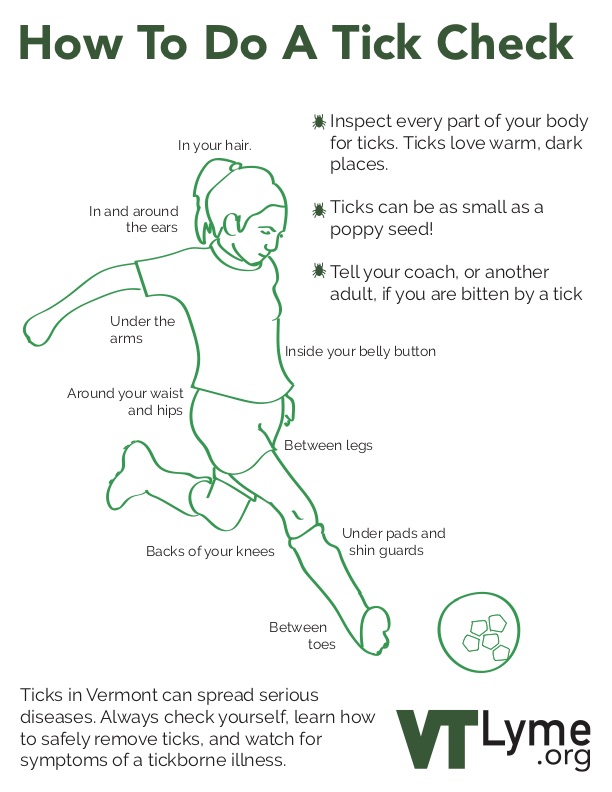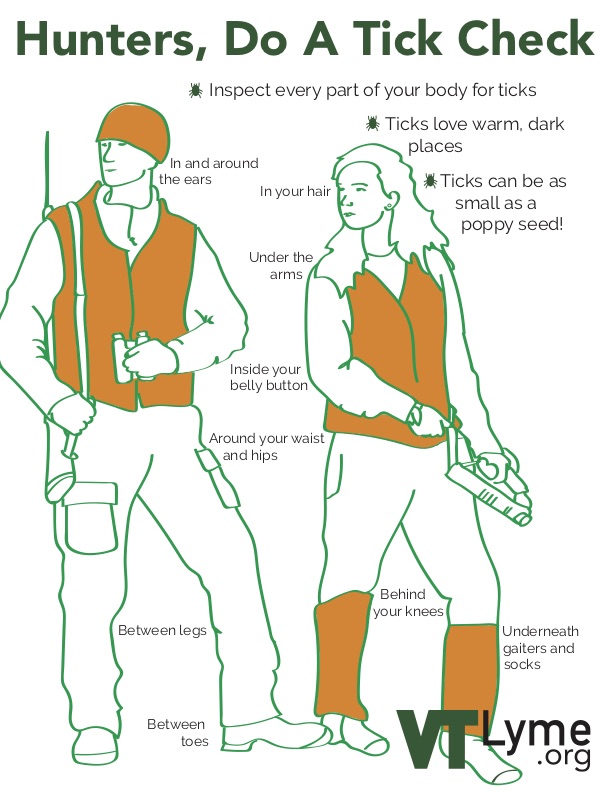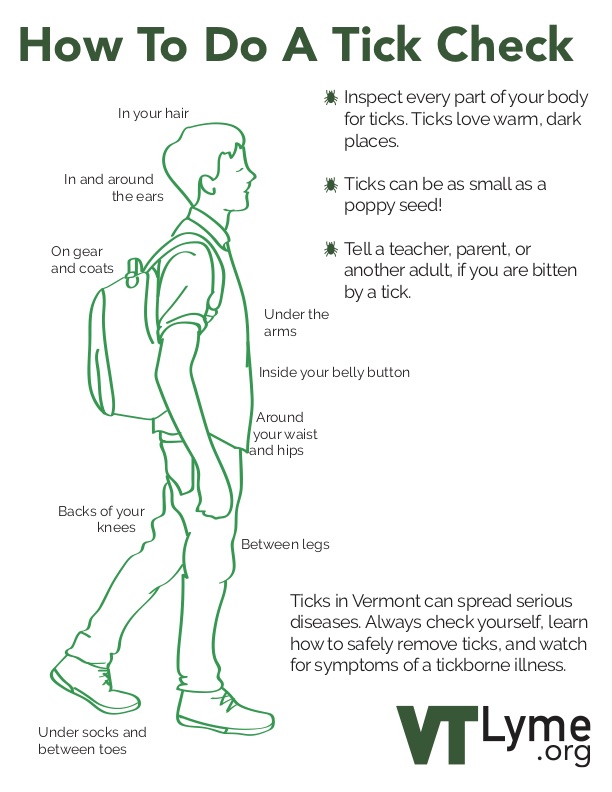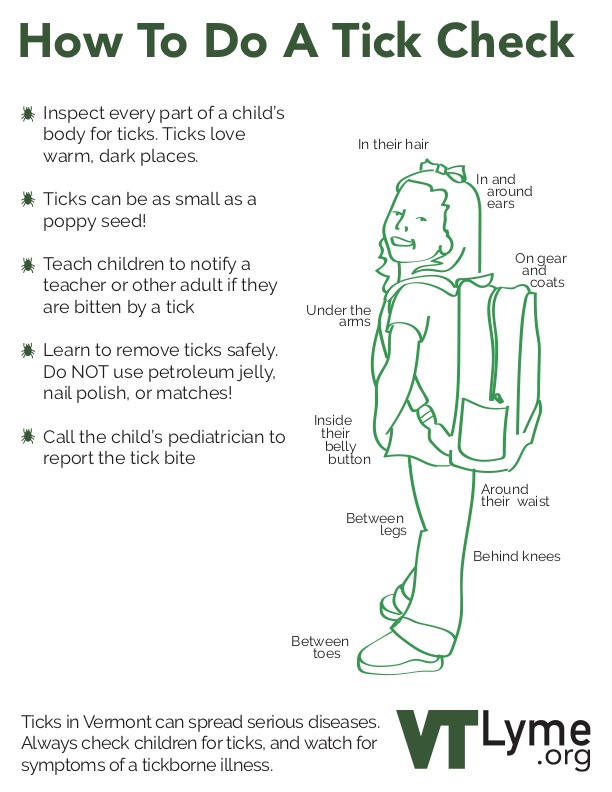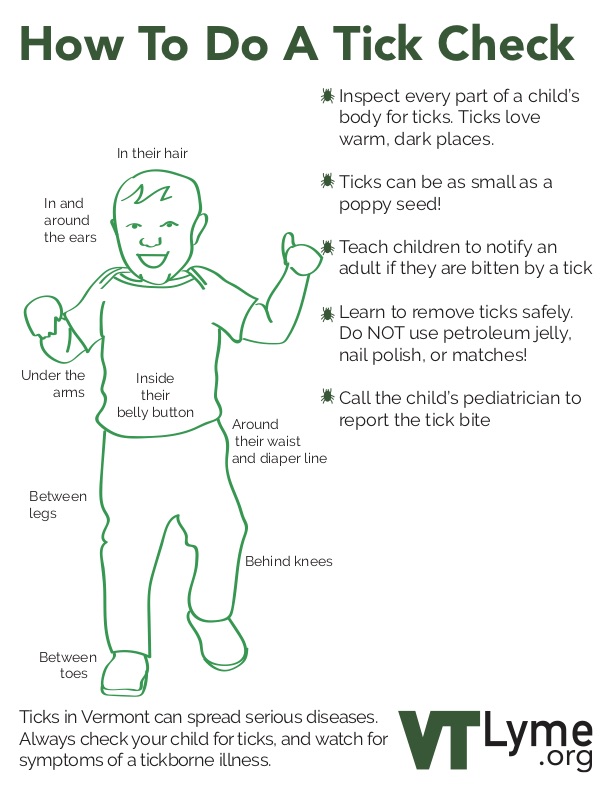
The best way to deal with the problem of tickborne disease in Vermont is to prevent tick bites. Over 50% of ticks tested in Vermont are infected with B. burgdorferi, the bacteria that causes Lyme disease. They also may be infected with other pathogens that can cause illness. Here is what the Vermont Department of Health recommends to prevent tick bites:
- Wear clothing treated with Permethrin. Permethrin is an insecticide that can be safely applied to clothing or gear. (It should never be applied to skin.)
- Use repellents (chemical or natural) that are labeled for ticks. Be sure to carefully follow the directions on the label.
- Wear light colored clothing (long sleeved pants and shirts) so that it is easier to spot ticks. Tuck pants into socks, and your shirt into pants. Wear hats and place long hair in braids to minimize access for ticks.
- Stay on the center of hiking trails. Ticks can sense both body heat and Co2 and seek areas of high human or wildlife traffic. Avoid walking through high grass and bushy areas and sitting on logs or rocks, or against trees. Use a blanket or tarp to avoid sitting directly on the ground when resting or picnicking.
- CONDUCT DAILY TICK CHECKS! Check yourself, your children and your pets for ticks frequently while participating in outdoor activities, and daily after spending time outdoors. Some ticks that transmit disease are as tiny as the period at the end of this sentence. Check carefully along the hairline, nape of neck, inside and behind the ears, armpits, groin area, behind the knees, inside your belly button, and between your toes.
- Tick check your gear and clothing prior to getting into a vehicle or entering your home.
- Place exposed clothing and gear directly into dryer on high heat for 10 minutes to kill ticks that may be clinging to the fabric. (Research shows it has to be the dryer – putting them directly in the washer does not kill ticks!)
- Shower as soon as you come inside if you have been in tick habitat.
- Avoid sleeping with pets. They may transport ticks onto your bed, increasing your chance of a tick bite.
- Control small mammal and songbird populations in and around your home. These animals can act as reservoir hosts and may increase your exposure to ticks.


